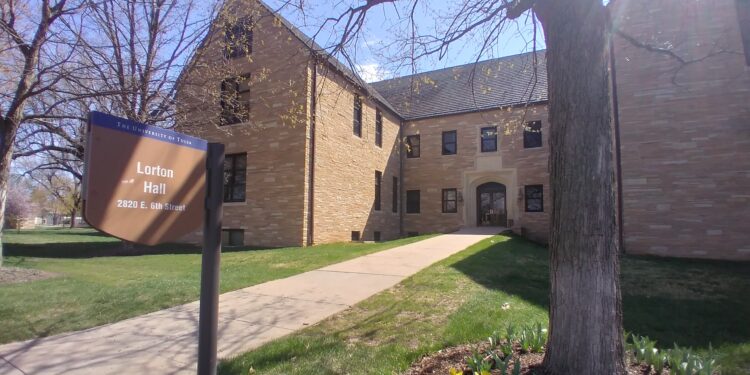Tvlse, Oklv – A new academic minor with a strong community focus is now available at the University of Tulsa. The Historical Trauma and Transformation minor, also called H2T, is being offered through the interdisciplinary Tulsa Institute of Trauma, Adversity, and iNjustice (TITAN) at the university. The program received a funding grant from the National Endowment for the Humanities in Feb 2023 and began enrolling students in October.
Executive Director of TITAN and Associate Professor of Psychology Dr. Lisa Cromer spoke about the program’s objectives stating, “Students will learn about the (white/colonial) historical assumptions that ground so much of society today, and when those assumptions are based on exploitation and harm, they will challenge them and work to make corrections.”
Dr. Cromer co-chairs the H2T minor with TU History Department Chair, and Mary Frances Barnard Chair in 19th-Century American History, Dr. Kristen Oetel.
In the last three decades the field of trauma studies has grown from its founding in medical and psychological research to its broad scope in fields like anthropology, sociology, art, history, and even the law. With a shift away from a heavy focus on the individual, current studies and research incorporate more of a focus on the collective. Additionally, looking at ways groups survive and thrive through trauma can shed light on histories and experiences that are often left out of the general historical understanding.
The H2T program requires 12 hours of credits, including the core course titled Historical Trauma and Transformation. While giving students a foundational understanding of trauma and survival, the program utilizes histories specific to Tulsa. For example, the core course covers theories and topics in colonization, history of enslavement within the U.S., the Indian Removals, Native American histories, and the Tulsa Race Massacre.
Incorporated within the curriculum of the core course is a topic singular to the University of Tulsa, the ongoing Presbyterian School for Indian Girls (PSIG) project. This project is a collaboration in partnership with MCN Oral Historian Midge Dellinger that is delving into the college’s origins as a missionary boarding school for Native American girls. Student researchers have been able to utilize the archival records and oral histories at the university to not only shed light on this history, but also connect it to survivors and families’ oral history.
History Near to Home
Because H2T utilizes historical experiences and resources unique to Tulsa within the program, place-based learning and community-based research are strong components within the minor.
This structure allows students to study historical trauma from outside the classroom with site visits to museums, memorials, and cultural centers. Dr. Cromer explained, “Their first project for class is to listen to oral histories and write about them. Then, they will be conducting interviews as others share their oral histories. A second project for the H2T class will be to critique how history is told and memorialized in different spaces. They will end the semester doing a presentation, sharing about a historical event and how it is memorialized, along with a critical analysis of the site.”
“We hope this minor and the H2T class will be an opportunity for students to explore their own histories and the history of their community.” – Executive Director of TITAN and Associate Professor of Psychology Dr. Lisa Cromer.
The H2T minor is heavily dependent on the relationships and support from community partnerships. Dr. Cromer explained that during the funding stage the program received letters of support from organizations and institutes across Tulsa.
“We had support from so many community partners when we applied for the grant, and we believe that this support was critical in getting funded. We had letters of support from the Gilcrease Museum and the Helmerich Center for American Research, the Sherwin Miller Museum of Jewish Art, Greenwood Rising, and others,” Dr. Cromer said.
The H2T minor will likely attract students from across the social sciences and humanities but its reach spans across the university as a whole. Dr. Cromer stated, “We hope it will attract students from the health sciences, law school, business school, journalism and media studies, and those who want to work in the social work and mental health disciplines.”
The faculty teaching within the H2T minor also come from a variety of disciplines across the university. Dr Cromer explained that to teach within the minor, faculty had to attend a two-week training in trauma-informed teaching. During the training, speakers and community professionals spoke about topics including the experiences and histories of Tulsa’s Native American communities. Topics in forced migration and the boarding school experience were part of the training, as well as topics in the ways communities can transform trauma through art, oral histories, and ancestral connection. MCN Secretary of Culture and Humanities RaeLynn Butler discussed the Native history of the land which the University of Tulsa occupies. Midge Dellinger also presented at the training and spoke about the Mvskoke forced removal and oral history knowledge.
Dr Cromer explained how the future of the program is situated within community partnerships because of its strong emphasis on community-based research. She stated, “We hope that through this new H2T program, we will form partnerships with Native communities. Our hope is to partner with and to work with Native communities, rather than being the outsider studying Native communities. There is a long history of research gone wrong and Indigenous voices not being centered in their own stories.”
To learn more about the minor and the associated research center, visit https://sites.utulsa.edu/titan/.
To learn more about PSIG stories, visit psigproject.org.





